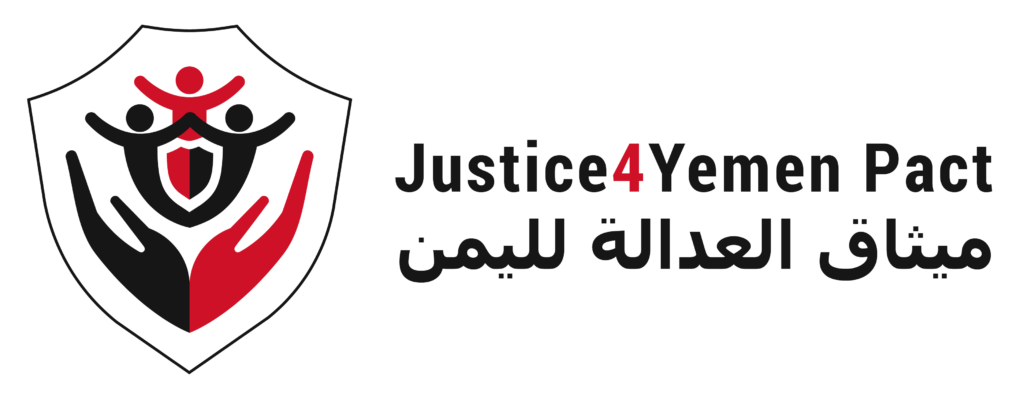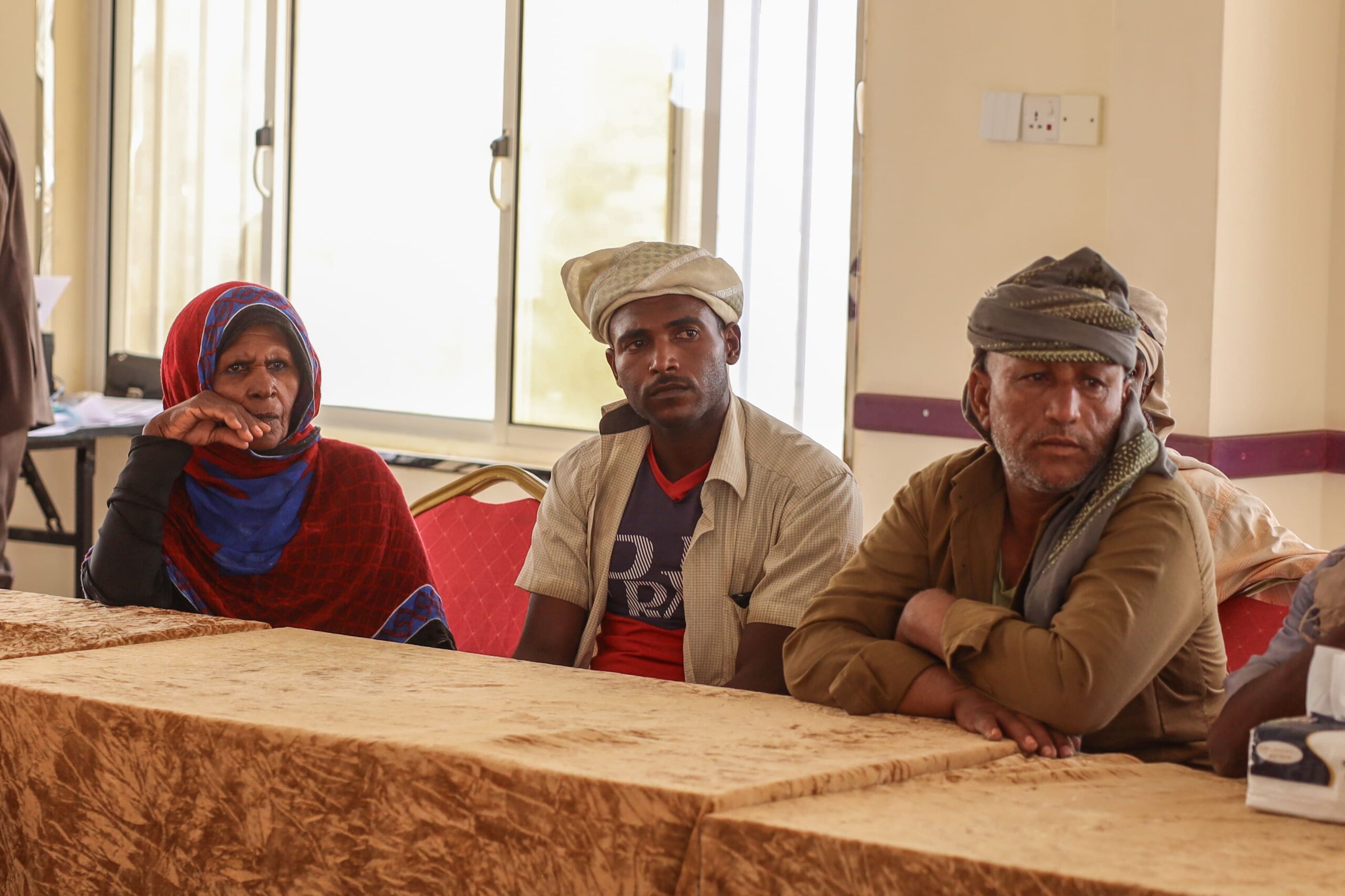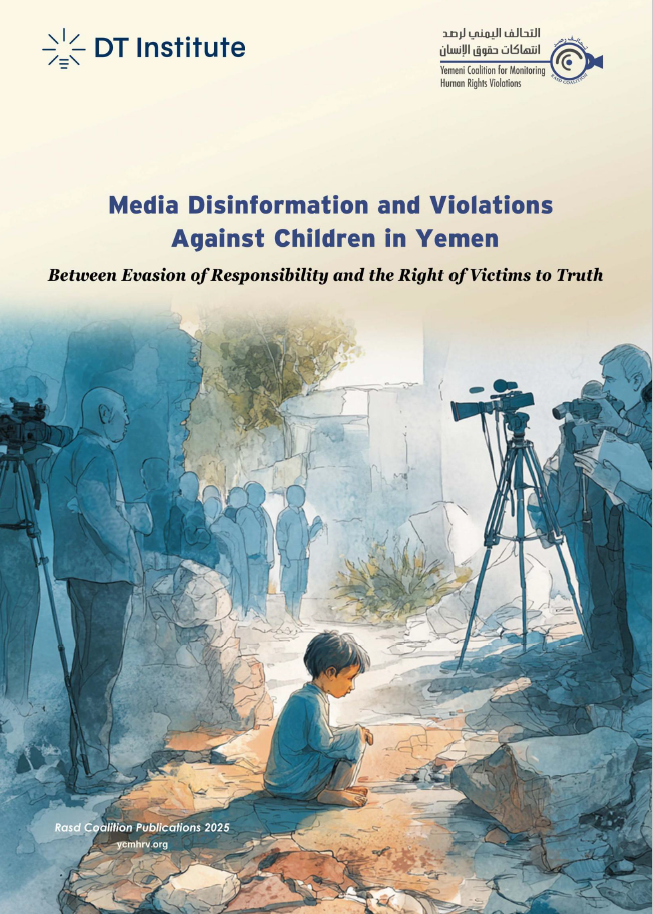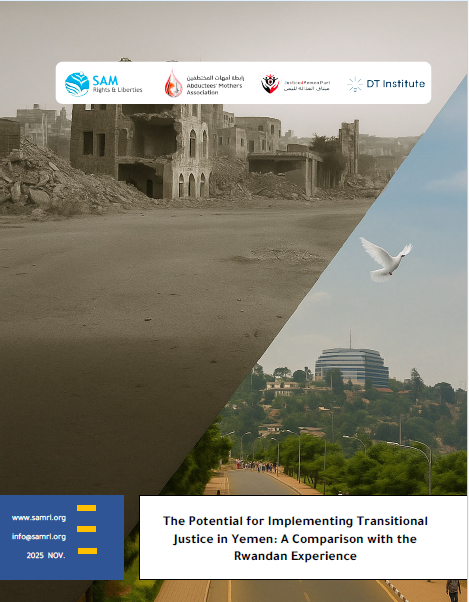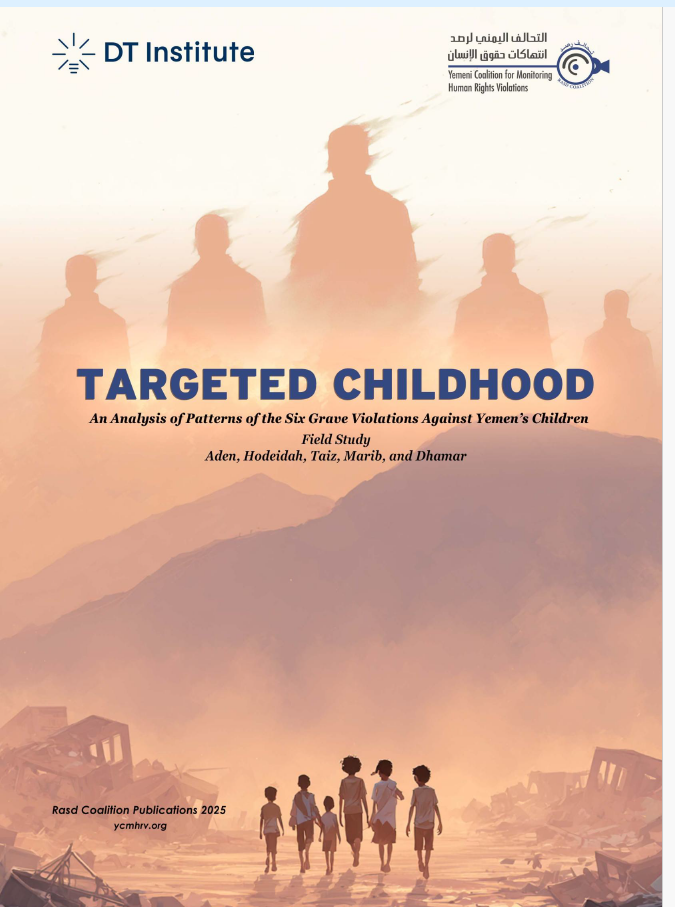| Program Name: | Supporting Peace in Yemen through Accountability, Reconciliation, and Knowledge-Sharing (SPARK) |
| Initiative Name: | Al-Shamayatayn Reconciliation Initiative |
In July, the SPARK team, made up of DT Institute, and local partners, Abductees’ Mothers Association (AMA) and SAM for Rights and Liberties (SAM), launched the restorative justice (RJ) pilots program. The aim of the pilots under this program is to facilitate local reconciliation and resolve significant public disputes causing human rights violations. The program’s initiatives were developed in response to the findings of The Path Towards Peace research study, published by SPARK partners in April 2025.
The Path Towards Peace captured the current local vision and understanding of transitional justice (TJ) across Yemen. It revealed that approximately 64.3% of community members prioritize reconciliation and efforts to end the war over holding perpetrators accountable. Participants also outlined several key roles for civil society in advancing TJ, including initiating dialogue and peacebuilding, providing financial and legal support to victims, raising awareness of TJ, and documenting human rights violations.
To date, one RJ pilot has successfully met its objectives: the Al-Shamayatayn Reconciliation Initiative. This initiative addressed long-standing tensions between the local community, particularly the Muhamasheen (literally “marginalized ones”), and security forces in Al-Shamayatayn District. These tensions stemmed from an unresolved case dating back five years, when a Muhamasheen community member was killed by security forces. His body remained unburied throughout this period, contrary to Yemeni cultural traditions, further deepening community trauma. This prolonged injustice created more tension and the potential for further violations against the Muhamasheen in that community.
To address this, SPARK team, including the SPARK Community Reconciliation and Consensus Committee (CRCC) engaged both parties in the dispute: the victim’s family and the security forces. The SPARK CRCC leveraged its network and influence to gain access to security officials, facilitated transparent dialogue, and build trust between the parties. The SPARK team also held meetings with the Director of Al-Shamayatayn District and engaged with the victim’s family to understand their demands. These efforts culminated in four facilitated dialogue sessions, which allowed the parties to communicate openly and reach mutual agreements.
After five years of impasse, and in the absence of judicial resolution, the SPARK team helped broker a reconciliation agreement, signed by both parties. This agreement formally ended the case and opened a path for healing based on dignity, acknowledgment, and justice. On July 29, 2025, the victim was finally laid to rest with a proper funeral, as requested by the family. In addition, the security forces acknowledged their wrongdoing and paid 5 million Yemeni Rials in reparations to the family. To support the healing process for both the family and the wider Muhamasheen community, SPARK organized a psychosocial support session, attended by 20 participants, including the victim’s family members. The session provided a shared space for emotional processing, offering long-awaited relief essential for moving beyond years of unresolved trauma.
To document and reflect on this success, AMA, supported by the broader SPARK team, is producing a video and presentation summarizing the initiative. These materials will detail the reconciliation process, highlight key challenges and lessons learned, and serve as tools for advocacy and learning. Additionally, SPARK will host a virtual symposium to discuss the initiative’s outcomes.
Unfortunately, tensions between security forces and the Muhamasheen, remain pervasive across Yemen. The ongoing conflict, now in its 11th year, has also deepened vulnerabilities among 4.5 million+ internally displaced persons (IDPs) and children exposed to recruitment, displacement, and sexual violence.
The urgent need for additional RJ pilots is clear: these initiatives play a critical role in easing local unrest, bridging social divides, and laying the groundwork for sustainable peace. Equally urgent is the broader need for transitional justice (TJ). After more than a decade of failed national peace talks, victim-centered approaches like RJ pilots represent a new path forward.
By demonstrating reconciliation at the community level, RJ initiatives operationalize transitional justice principles, educating stakeholders, building trust, and fostering shared frameworks for conflict resolution. These pilots serve as blueprints for future TJ efforts, rooted in local ownership, dignity, and dialogue.

